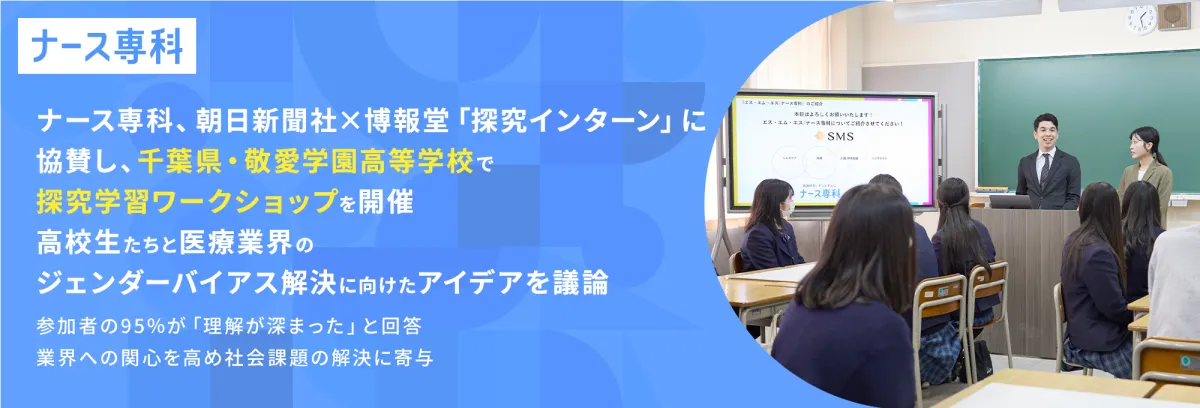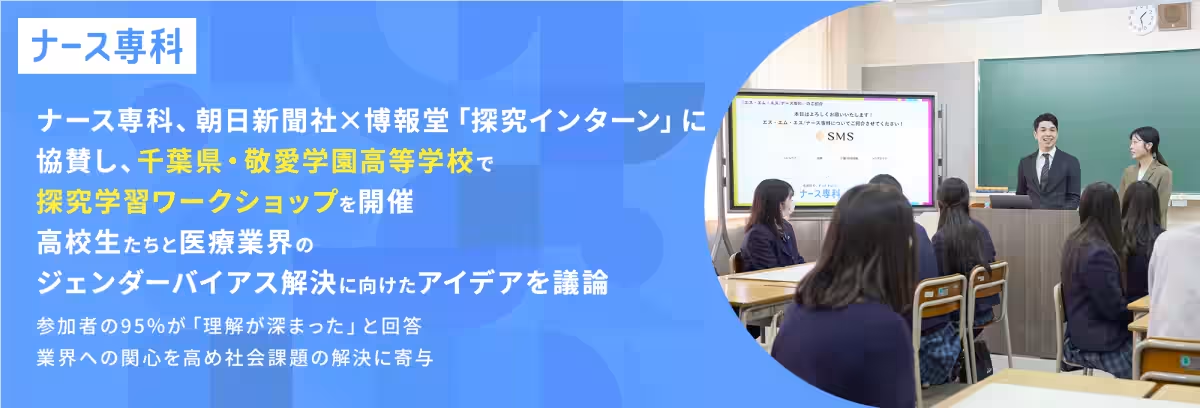

Addressing Gender Bias in Healthcare: A Workshop for High School Students
Addressing Gender Bias in Healthcare: A Workshop for High School Students
On March 11, 2025, a significant workshop was held at Keiai Gakuen High School in Chiba, Japan, under the collaboration of Nurse Senka, Asahi Shimbun, and Hakuhodo. This initiative was designed to explore solutions to gender bias in the healthcare sector, which remains a pressing issue within the industry.
The Workshop's Purpose
The workshop titled "How Can We Overcome Gender Bias in Healthcare Careers?" gathered 18 high school students and one teacher who engaged in discussions and activities aimed at fostering a deeper understanding of gender bias in the medical field. The goal was not only to educate the participants but also to inspire them to think critically about the realities of the healthcare industry and to equip them with knowledge that would contribute to combating gender bias in their future careers.
A Shift in Context
Historically, the Japanese healthcare system has referred to female nurses as "kanfū" and male nurses as "kangoshi," but reforms in 2002 standardized the term to "kangoshi" for both genders. Despite this progress, the employment rate of male nurses remains low, at just 8.6% in 2022, up from 6.2% in 2012. This underscores a societal bias where male nurses often face challenges such as inadequate facilities and the risk of experiencing sexual harassment without the confidence to voice their concerns.
Workshop Activities
The workshop employed a blend of basic knowledge acquisition and active discussion. Students first learned about the current landscape of the healthcare industry, followed by an introduction to the nuances of gender bias. As they recognized issues like the stereotype that STEM fields are male-dominated or that traditional roles are expected of nurses, they began drafting potential solutions. Ideas ranged from emphasizing individual capabilities over gender to promoting designs that reflect a diverse range of preferences.
Next, students debated real-world scenarios that exemplified gender bias within the medical workforce. For instance, they discussed perceptions that female doctors are rare due to the existence of gendered terms like "female doctor." This segment encouraged students to articulate their thoughts on the institutional barriers that inhibit men from pursuing nursing careers and vice versa.
The final segment involved group presentations where students elaborated on specific gender bias issues they identified. One group highlighted that male nurses might face restrictions in their roles due to prevailing stereotypes, proposing that highlighting the contributions of male nurses in media and educational resources could help alter these perceptions.
Participant Feedback
The workshop concluded with an evaluation, revealing that approximately 95% of participants felt their understanding of gender bias in the healthcare sector had deepened. Moreover, about 90% expressed an increased interest in healthcare professions. One student shared, "I hope that more people become aware of the biases in society and that we can create a better world." Another student stated, "I want to become a nurse one day, so understanding these issues will guide my decision-making for my career path."
Commitment to Change
Through initiatives like this workshop, Nurse Senka aims to provide continued support and resources to the upcoming generation in healthcare, encouraging them to address and resolve issues like gender bias effectively. This effort aligns with their mission to create a more equitable work environment for all nurses, ensuring that they feel valued and supported in their roles.
Conclusion
As Japan continues to face challenges in healthcare staffing amid an aging population, addressing gender bias is crucial not only for the well-being of nursing professionals but also for the quality of care provided to patients. The success of workshops like this serves as a reminder of the importance of inclusive discussions and proactive educational efforts in shaping a more equitable future in healthcare.
For more details about Nurse Senka and ongoing initiatives, visit Nurse Senka.




Topics Other)










【About Using Articles】
You can freely use the title and article content by linking to the page where the article is posted.
※ Images cannot be used.
【About Links】
Links are free to use.